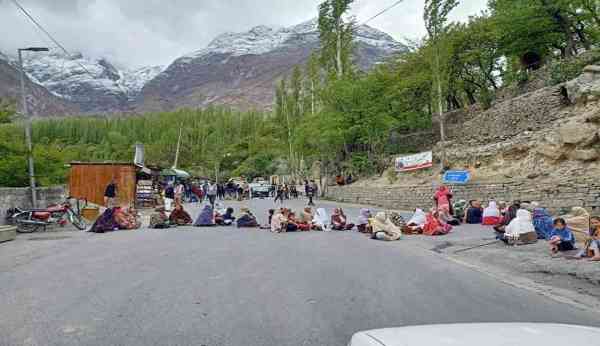
Gilgit: According to Pamir Times, a group of ladies in Sultanabad village, Pakistan-occupied Gilgit Baltistan (PoGB), held a sit-in on the Karakoram Highway to express their annoyance at the ongoing power outages that the locals are experiencing.

The demonstration against the secretary of the Water and Power Department highlighted the mounting ire over the region’s power outages. Until their demands were fulfilled, the demonstrators promised to keep up their sit-in.
Despite having a transformer erected, Sultanabad residents have been without dependable energy for the last two years. The region has been without electricity for a long time due to the contractor’s inability to finish essential maintenance on two important power poles, according to Pamir Times.
In order to finish the power line construction and hold the contractor responsible for the delays, the demonstrators called for quick action. Protesters claim that while the contractor has been paid in full for his work, the project is still unfinished, and the inhabitants are still without power. Because inhabitants are unable to utilise other necessary electrical services or charge their cell phones, the loss of electricity has made everyday living more challenging.
The protracted wait irritated one of the demonstrators, who has been without power for nearly two years. He underlined the pressing need for electricity and other services and stressed that both the government and contractors must keep their end of the bargain. According to Pamir Times, he also demanded responsibility for the community’s continued neglect.
The women’s demonstration serves as a sobering reminder of the continuous difficulties in isolated places where mismanagement and protracted delays are commonplace in infrastructure projects.
The people of Gilgit-Baltistan (PoGB), which is occupied by Pakistan, have often protested to draw attention to political, social, and economic concerns. They call on authorities to listen to their concerns and provide practical answers for a brighter future and responsive government, and they want justice, equality, and better living circumstances.